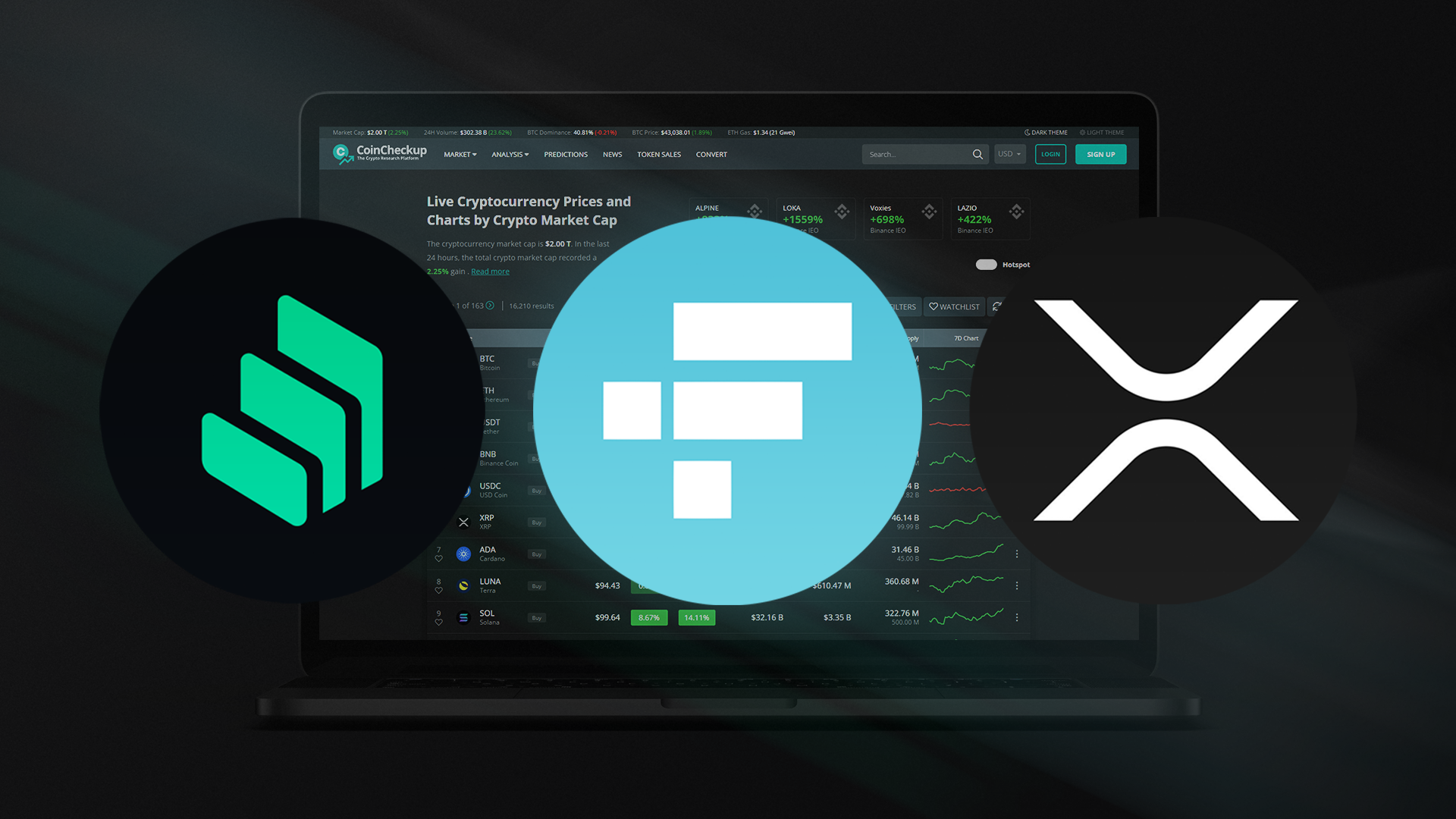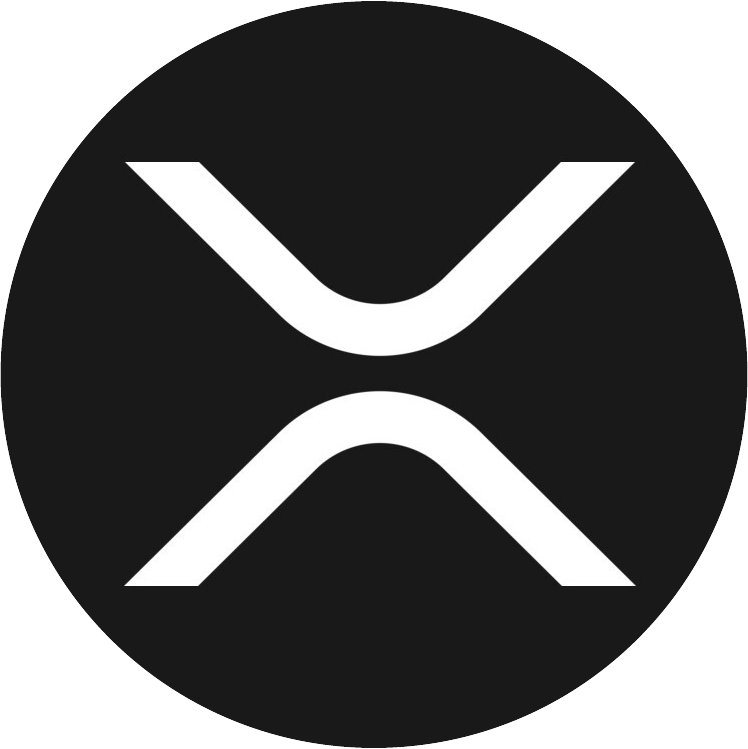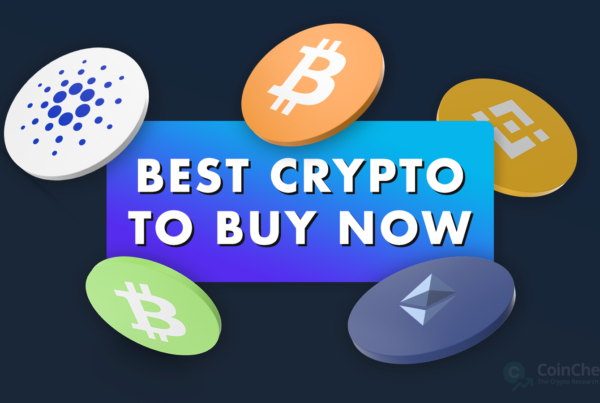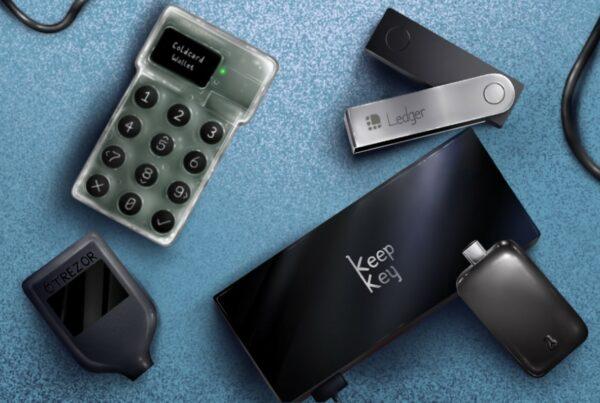
The total cryptocurrency market capitalization is again in a slow but steady decline. The total valuation of all cryptocurrecies in circulation combined accounted for $945 billion at the beginning of this week. However, while the average price change last week was negative several crypto assets defied the market trend and stood out by posting high gains. Best performers of last week were Ripple (XRP), Quant (QNT) and Algorand (ALGO).

3. Compound (COMP)
Compound is a decentralized finance (DeFi) protocol that allows users to either take out crypto loans or lend their crypto assets in order to earn interest. COMP is an ERC-20 token built on the Ethereum blockchain that functions as the platform’s governance token, giving its holders the power to propose and vote on changes to the Compound protocols. The Compound team even describes COMP token as a way to achieve full decentralization and ultimately remove the original developers of Compound as a point of failure for the protocol. While Robert Leshner launched the Compound platform in 2018, COMP governance tokens were created later – the initial distribution of the tokens to Compound protocol users took place on June 16, 2020.
Compound Treasury has launched a borrowing product for institutional clients
Recently the Compound Treasury announced the launch of a borrowing product for institutional clients. The new product allows institutions to take out a loan in USD or USDC through Compound, using Bitcoin, Ether or supported ERC-20 tokens as collateral.
According to the announcement the institutional loans are offered at fixed rates starting at 6% APR and with no repayment schedule. This gives institutions a high level of flexibility as it allows them to repay their balances whenever it is best for their business. Nevertheless, the loans must remain overcollateralized throughout the whole borrowing period. The launch of “Borrowing for institutions” is already the third in a series of institution-focused features launched by Compound. Last year, the protocol introduced an institutional cash management solution that offers a 4% APR on USD and USDC deposits. In addition, the Compound Treasury became the first DeFi-backed company to receive a credit rating from a major agency in May 2022. The S&P Global Ratings gave Compound a B- credit rating. If Compound’s bid to enter the institutional market is successful, we could soon see significantly higher transaction volumes and total value locked (TVL) in the protocol.

2. FTX Token (FTT)
FTX is a cryptocurrency derivatives exchange that offers futures, leveraged ERC-20 tokens and OTC trading. The developers of the FTX exchange aim to offer a first-class trading experience by constantly improving the platform and addressing the issues that are often left unaddressed on other mainstream exchanges. FTX focuses on developing and offering institutional-grade solutions. The official token and the backbone of the FTX cryptocurrency derivatives exchange is FTX Token (FTT). The maximum supply of FTT is 350 million tokens, but the exchange uses one third of all fees collected from the trades to buy back and burn FTT. Users of the exchange can utilize FTT as collateral for futures positions, use it for earning rebates on trading fees, or even stake the coins. Furthermore, the exchange promises to add more FTT use cases in the future.
The FTX exchange seeks to cement its place among the largest digital assets platforms by trying to raise $1 billion of fresh capital
The FTX crypto exchange has recently made several moves to cement its place among the largest digital assets platforms and is reportedly holding talks for even bigger deals.
After already having raised $400 million earlier this year, the FTX exchange is now reportedly trying to raise another $1 billion of fresh capital through a new funding round. The firm does not hide that the potential new funding would be used to finance acquisitions during this “crypto winter”. It is already an open secret that FTX and Binance are competing to purchase assets of the bankrupt crypto lender Voyager Digital. According to sources close to the matter, FTX is currently in the lead to acquire Voyager’s remains. The auction will run until September 29, when the winners of the auction and the bidding process will be disclosed to the public and presented to the judge in a bankruptcy courtroom hearing. In addition, after FTX CEO Sam Bankman-Fried’s purchase of $600M worth of Robinhood stocks in May rumours started circulating that FTX is exploring the acquisition of Robinhood. Although they have not gone through with the deal yet, FTX is still believed to be interested in the popular app-based stock brokerage firm. If FTX ends up purchasing any of the aforementioned companies, the FTX Token could rally.

1. XRP (XRP)
XRP is a cryptocurrency that was launched in 2012 by Chris Larsen, Jed McCaleb and Arthur Britto. Ripple’s network uses a unique Ripple Protocol consensus algorithm (RPCA), which is neither proof-of-work nor proof-of-stake, to facilitate fast and cheap transactions. The maximum supply of XRP is 100 billion coins and all the coins were minted at launch of the Ripple blockchain. Back than 80% of the total XRP supply was given to fintech firm Opencoin, a company that renamed to Ripple Labs in 2015. As of today, Ripple Labs still hold more than half of the total XRP supply. However, most of the company’s XRP holdings are locked in escrow. In December 2020 Ripple became entangled in a lawsuit with the US SEC, which accuses that the company of selling unregistered securities. The legal battle between Ripple and the SEC remains one of the key factors influencing XRP’s price.
Both Ripple Labs and the SEC want the lawsuit to end as soon as possible, analysts believe in Ripple’s win
XRP has seen a considerable uptick in its price following the recent development in Ripple Labs vs. the SEC lawsuit. The legal battle, started by the SEC in late 2020, is centered around the SEC’s claim that XRP is a security and should therefore be regulated as such. Ripple’s defence, on the other hand, has been recently centered on a former SEC official’s explanation of why Bitcoin and Ethereum are not securities. Former SEC official William Hinman stated that “a digital asset transaction may no longer represent a security offering, if the network on which the token or coin is to function is sufficiently decentralized”. Ripple argues its network is “sufficiently decentralized,” and should thus be treated as Bitcoin and Ethereum.
As the lawsuit has been dragging out for almost two years, both parties filed a motion on September 18, calling for the federal judge to reach a verdict on the case as soon as possible. This development alone has caused XRP price to surge by more than 30%, which indicates the cryptocurrency community, investors and market analysts all expect a favourable outcome. The most recent news from the courtroom floor have seem to be turning the scale in Ripple’s favour. The Chamber of Digital Commerce, for example, has recently filed an amicus brief in the case of Ripple vs. SEC. In the document, the group refrained from calling XRP a security and called for regulatory clarity above all. In addition, Ripple’s general counsel Stuart Alderoty believes that the SEC is unable to find legal ground to classify XRP as a security.
Furthermore, both Alderoty and Ripple CEO Brad Garlinghouse believe that the SEC has overstepped its authority in this case. While we are aware that almost all of the described information is coming from the Ripple’s side and is therefore inevitably biased, the other party is scarce with publicly shared statements almost as if they have run out of arguments. Provided Ripple Labs exit the courtroom as the winner, do prepare for a XRP price rollercoaster.



